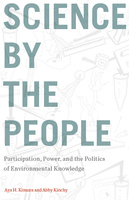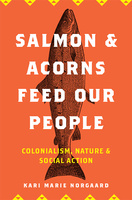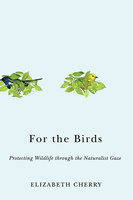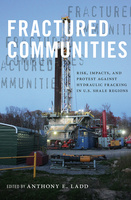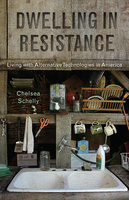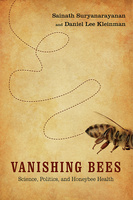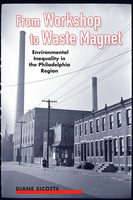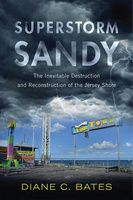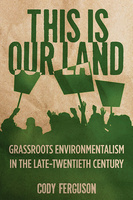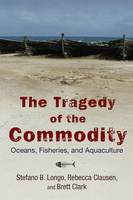Showing 11-20 of 21 items.
Science by the People
Participation, Power, and the Politics of Environmental Knowledge
By Aya H. Kimura and Abby Kinchy
Rutgers University Press
Studies show that citizen science projects—projects involving nonprofessionals—face dilemmas ranging from austerity to presumed boundaries between science and activism. By unpacking the politics of citizen science, this book aims to help people negotiate a complex political landscape and choose paths moving toward social change and environmental sustainability.
Salmon and Acorns Feed Our People
Colonialism, Nature, and Social Action
Rutgers University Press
Salmon and Acorns Feed Our People: Colonialism, Nature and Social Action draws upon nearly two decades of examples and insight from Karuk experiences on the Klamath River to illustrate how the ecological dynamics of settler-colonialism are essential for theorizing gender, race and social power today.
For the Birds
Protecting Wildlife through the Naturalist Gaze
Rutgers University Press
Offering readers a glimpse behind the binoculars, For the Birds reveals birders to be important allies in the larger environmental conservation movement. Drawn from extensive interviews and field observations, it shows birders participating in citizen science projects, witnessing the devastating effects of climate change, and discovering small pockets of biodiversity in unexpected places.
Fractured Communities
Risk, Impacts, and Protest Against Hydraulic Fracking in U.S. Shale Regions
Edited by Anthony E. Ladd
Rutgers University Press
In Fractured Communities, Anthony E. Ladd and other leading environmental sociologists present a set of crucial case studies analyzing the differential risk perceptions, socio-environmental impacts, and mobilization of citizen protest (or quiescence) surrounding unconventional energy development and hydraulic fracking in a number of key U.S. shale regions.
Dwelling in Resistance
Living with Alternative Technologies in America
Rutgers University Press
Chelsea Schelly uses ethnographic research, participant observation, and numerous in-depth interviews to examine four alternative U.S. communities where individuals use electricity, water, heat, waste, food, and transportation technologies that differ markedly from those used by the vast majority of modern American residential dwellers.
Vanishing Bees
Science, Politics, and Honeybee Health
Rutgers University Press
In 2005, beekeepers in the United States began observing a mysterious and disturbing phenomenon: once-healthy colonies of bees were suddenly collapsing, leaving behind empty hives. As it explores the contours of this crisis, Vanishing Bees considers an equally urgent question: what happens when beekeepers, farmers, scientists, agrichemical corporations, and government regulators approach the problem from different vantage points and cannot see eye-to-eye? The answer may have profound consequences for every person who wants to keep fresh food on the table.
From Workshop to Waste Magnet
Environmental Inequality in the Philadelphia Region
Rutgers University Press
From Workshop to Waste Magnet presents Philadelphia’s environmental history as a bracing case study in mismanagement and injustice. Tracing the complex interactions among economic decline, federal regulations, local politics, and shifting ethnic demographics, sociologist Diane Sicotte uncovers how only a few communities came to host many types of polluting or waste disposal land uses. What she finds reveals the devastation that occurs when mass quantities of society’s wastes mix with toxic levels of systemic racism and inequality.
Superstorm Sandy
The Inevitable Destruction and Reconstruction of the Jersey Shore
Rutgers University Press
Why do people build in areas open to repeated natural disasters? Drawing on a variety of insights from environmental sociology, Superstorm Sandy offers a wide-ranging look at the Jersey Shore both before and after this disaster, examining the many factors—such as cultural attachment, tourism revenues, and governmental regulation—that combined to create a highly vulnerable coastal region and that fueled the demand to rebuild.
This Is Our Land
Grassroots Environmentalism in the Late Twentieth Century
Rutgers University Press
In This is Our Land, environmental historian Cody Ferguson documents a little-noted but important change in the environmental movement, describing three representative grassroots groups—in Montana, Arizona, and Tennessee—whose stories show how quite ordinary citizens can band together to solve environmental problems. As they did, they redefined political participation and expanded the ability of citizens to shape their world.
The Tragedy of the Commodity
Oceans, Fisheries, and Aquaculture
Rutgers University Press
The Tragedy of the Commodity explores the role of human agency in the overfishing crisis, highlighting the social and economic forces behind this looming ecological problem. In a critique of the classic theory “the tragedy of the commons” by ecologist Garrett Hardin, the authors argue that it is the commodification of aquatic resources that leads to the depletion of fisheries and the development of environmentally suspect means of aquaculture.
Stay Informed
Subscribe nowRecent News

